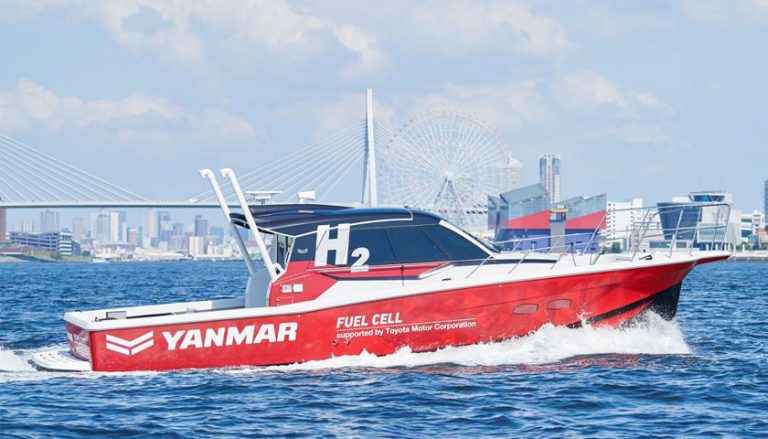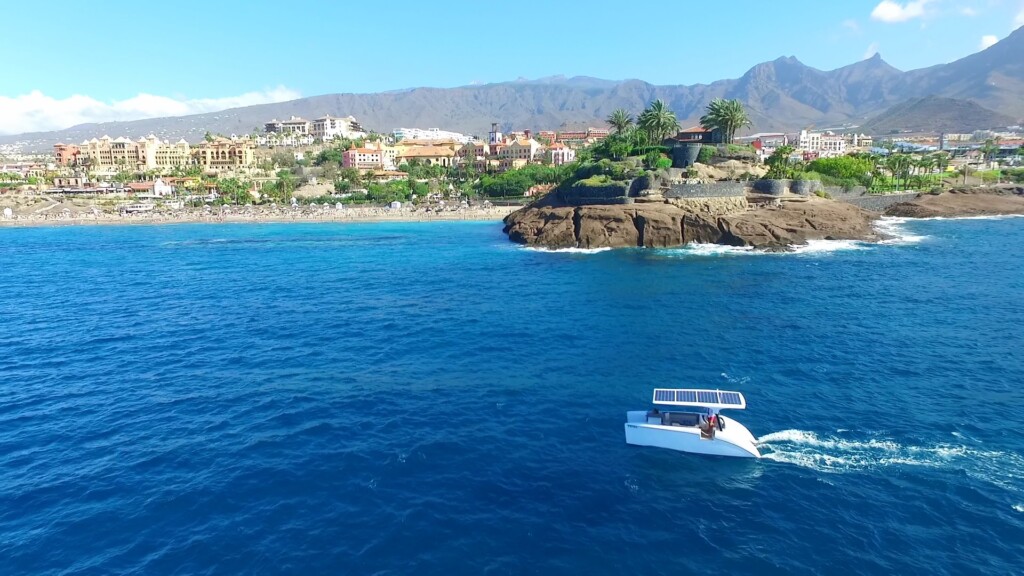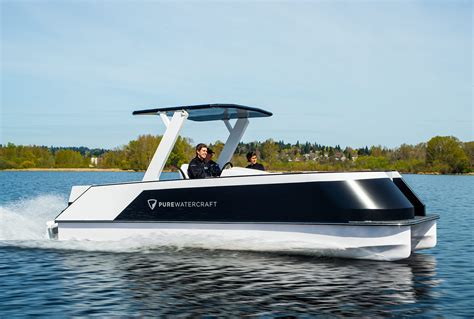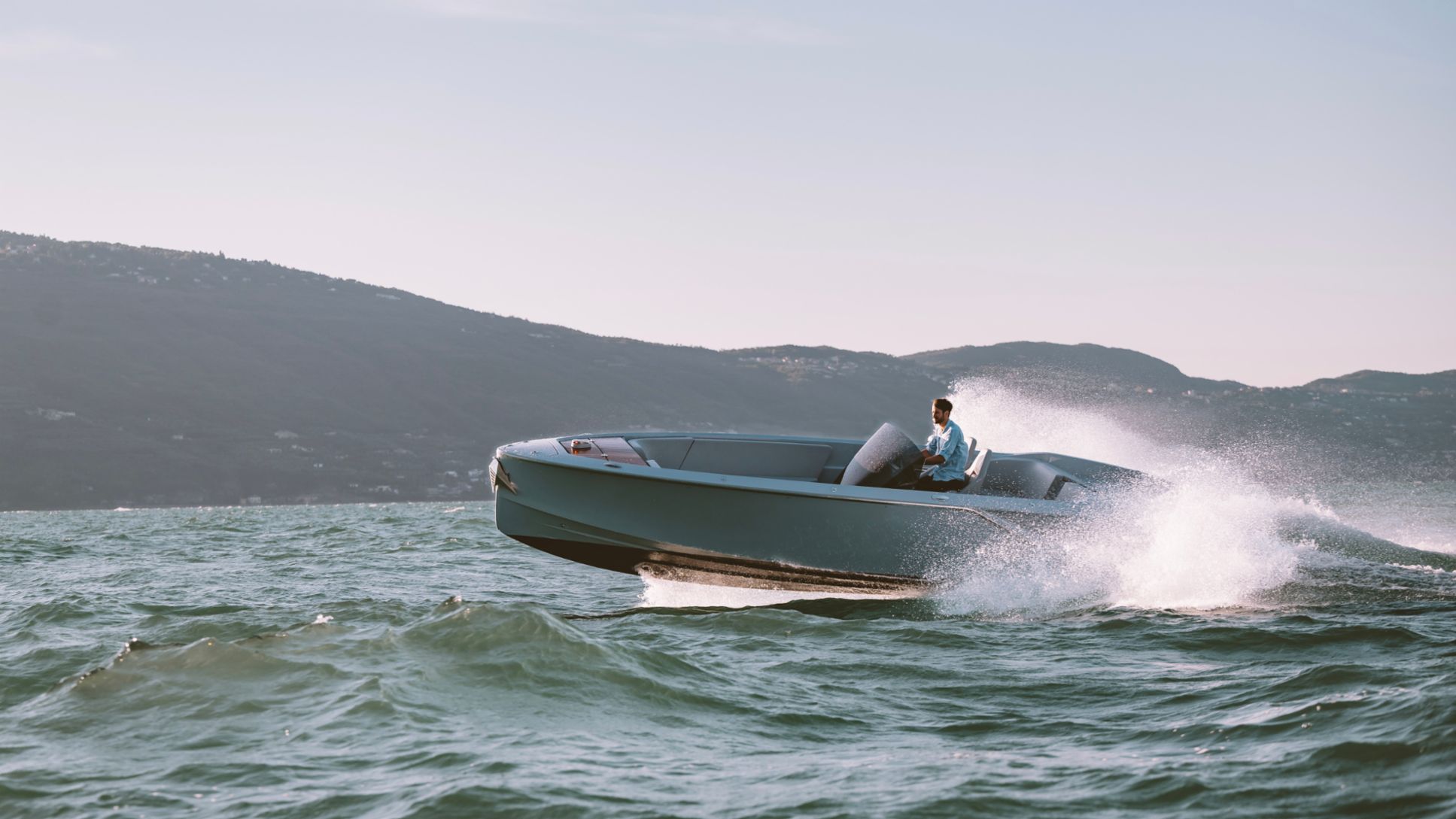
Yanmar Holdings Co., Ltd. and Toyota Motor Corporation have partnered to develop a fuel cell system specifically for maritime use in boats. By utilizing the hydrogen fuel cell technology from Toyotas Mirai, Yanmar aims to showcase a prototype of this system by the end of 2020. This collaboration is a response to the global push for environmentally friendly powertrain solutions in the maritime industry, which is facing stricter emissions regulations.
FCEVs, unlike electric cars, do not have a significant market share. The reason for this is the lack of a hydrogen network, as there is not enough demand for it. However, this is not an issue for boats, as they can easily have hydrogen pumps in the marina where they are docked. Taking advantage of this, Yanmar decided to collaborate with Toyota to create a fuel cell boat using the Toyota Mirai’s technology. Yanmar and Toyota Motor Corporation have signed a memorandum of understanding to develop a fuel cell specifically for maritime use. It is expected that this new fuel cell will be based on the hydrogen fuel cell system used in the Mirai. The question now is what specific requirements this fuel cell should meet to be suitable for boats.
The changes would not have to be extensive, despite the demanding requirements for automotive application. Fuel cells, as previously stated, are practical for larger vehicles like heavy trucks, trains, and boats. An excellent example of this is the Yanmar prototype, which can accommodate multiple hydrogen tanks without significantly affecting its load capacity, unlike batteries. These tanks will be sourced from the Mirai, as mentioned in the press release. However, the utilization of fuel cells in passenger cars faces various challenges, such as the limited availability of hydrogen pumps. Additionally, a significant portion of hydrogen production relies on natural gas, creating environmental concerns. In an effort to address this, the Nikola Motor Company has opted to generate hydrogen for their vehicles using alkaline electrolyzers powered by solar or wind power plants.
Yanmar Holdings Co., Ltd. and its subsidiary Yanmar Power Technology Co., Ltd., based in Osaka, Japan, are working on a groundbreaking solution for boats. They are developing a small alkaline electrolyzer that can utilize the water from seas, rivers, or lakes to produce the necessary hydrogen for fuel cell boats. By the end of 2020, the Japanese boat company aims to showcase a prototype of this technology. If Yanmar and Toyota proceed with this idea, it is highly probable that these Mirai-powered boats will be able to achieve longer distances than all the existing Mirai units sold thus far. This will be particularly beneficial in areas where a comprehensive hydrogen refueling network is not yet fully established.
Yanmar has recently introduced a hydrogen fuel cell system for maritime use, utilizing the same technology found in fuel cells for automobiles. This development is in response to the global efforts to provide environmentally friendly powertrain solutions, particularly in the maritime industry.
The International Maritime Organization has set a target of zero greenhouse gas emissions by the end of the century, leading to tighter marine environmental regulations and the implementation of emission control areas. These measures have started affecting ship operations across the world.
Yanmar has already met the demands for emission control regulations in different regions by developing dual-fuel engines and cleaner diesel engine technologies. However, the next step is to focus on the creation of powertrains that do not rely on fossil fuels.
Yanmar has been actively working on developing future powertrains that utilize hydrogen as a fuel. In order to achieve this, the company has partnered with Toyota Motor Corporation to collaborate on the development of a hydrogen fuel cell system specifically for maritime purposes. The system will be based on components from Toyota’s hydrogen fuel cell system, which includes high pressure hydrogen tanks found in the MIRAI, Toyota’s hydrogen fuel cell automobile. To ensure ease of installation and an impressive cruising range, Yanmar intends to install this maritime fuel cell system on their own boat and conduct a field demonstration test by the end of FY2020. Additionally, Yanmar plans to further expand the application and deployment of this technology into various other sectors.
Yanmar, a Japanese boat company, is collaborating with Toyota to create a fuel cell boat that utilizes hydrogen technology. The lack of a hydrogen network has hindered the market share of fuel cell electric vehicles (FCEVs), but this is not an issue for boats as they can have hydrogen pumps in marinas. The goal is to develop a fuel cell system specifically for maritime use, with a prototype expected to be showcased by the end of 2020



